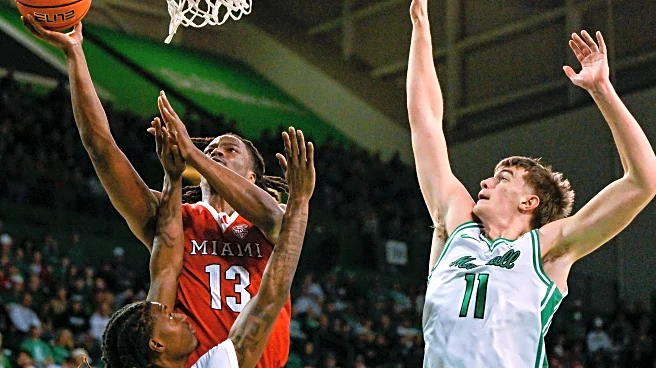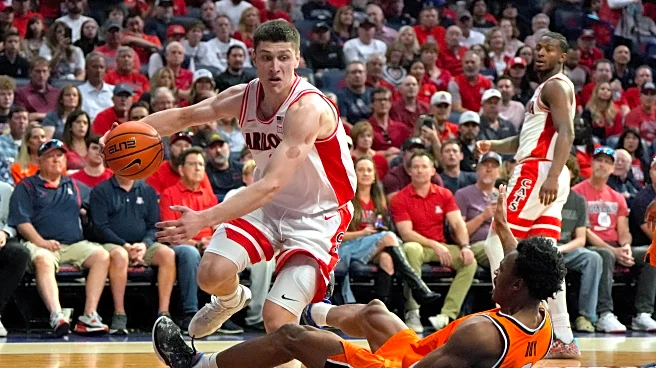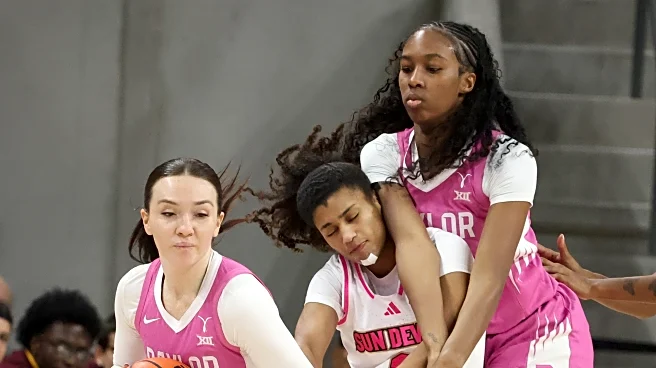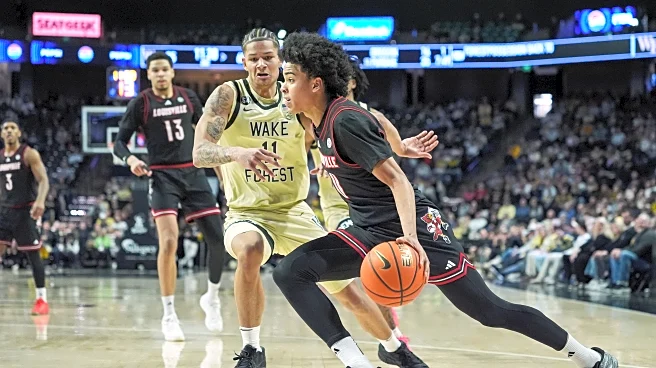What's Happening?
Kenny Easley, former Seattle Seahawks safety and Pro Football Hall of Famer, has died at the age of 66. Easley, known as 'The Enforcer' for his hard-hitting style, played his entire NFL career with the Seahawks from 1981 to 1987. He was a five-time Pro Bowler
and three-time All-Pro player, drafted out of UCLA with the No. 4 overall pick in 1981. Easley's career was marked by his leadership and intensity, earning him the NFL Defensive Player of the Year award in 1984. His career ended prematurely due to a kidney ailment, which he believed was caused by painkillers prescribed during his playing days. Easley reconciled with the Seahawks in 2002, and his No. 45 jersey was retired by the team in 2017.
Why It's Important?
Easley's passing is a significant loss for the NFL and the Seattle Seahawks, as he was a pivotal figure in the team's history. His achievements on the field, including leading the NFL in interceptions in 1984, highlight his exceptional talent and impact on the sport. Easley's story also brings attention to the health challenges faced by athletes, particularly regarding the use of painkillers and their long-term effects. His reconciliation with the Seahawks and induction into the Hall of Fame reflect the enduring respect for his contributions, despite past controversies.
What's Next?
The Seahawks and the NFL community are likely to honor Easley's legacy through tributes and memorials. His impact on the game and the team will continue to be celebrated, and discussions around player health and safety may be revisited in light of his experiences. The Seahawks may organize events or initiatives to commemorate Easley's contributions and support his family during this time.
Beyond the Headlines
Easley's story underscores the ethical considerations in sports medicine and the responsibilities teams have towards their players' health. The settlement of his lawsuit with the Seahawks highlights the complexities of legal disputes in sports, particularly concerning health-related issues. Easley's reconciliation with the team and his induction into the Hall of Fame demonstrate the potential for healing and recognition despite past conflicts.
















